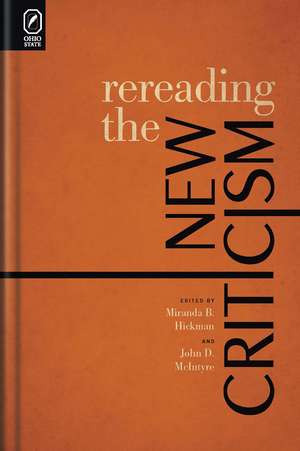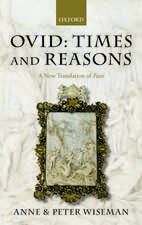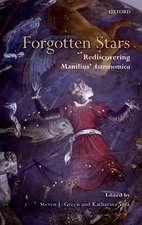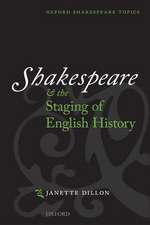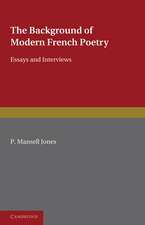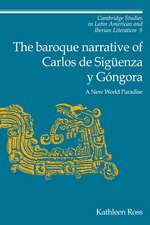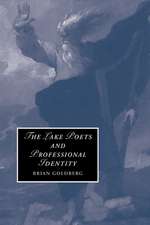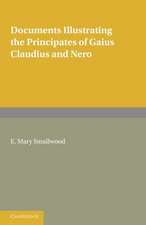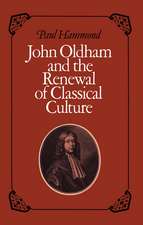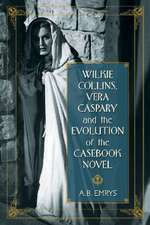Rereading the New Criticism
Autor Miranda B. Hickman, John D. McIntyreen Limba Engleză Paperback – iun 2015
Committed to rigorous “close reading” and engagement with the “text itself” rather than information “extrinsic” to the text, John Crowe Ransom and a group of colleagues in the American South of the 1930s established a vanguard approach to literary criticism they called the “New Criticism.” By the 1940s, New Critical methods had become the dominant pedagogy in departments of English at colleges and universities across America, enjoying disciplinary hegemony until the late 1960s, when an influx of new theoretical work in literary studies left the New Criticism in shadow. Inspired by a range of new commentary reconsidering the New Criticism (from critics including Jane Gallop, Terry Eagleton, Charles Altieri, and Camille Paglia), the essays in Rereading the New Criticism reevaluate the New Critical corpus, trace its legacy, and explore resources it might offer for the future of theory, criticism, and pedagogy. Addressing the work of New Critics such as Ransom, Cleanth Brooks, and Robert Penn Warren, as well as important forerunners of the New Critics such as I. A. Richards and William Empson, these ten essays shed new light on the genesis of the New Criticism and its significant contributions to the development of academic literary studies in North America; revisit its chief arguments and methods; interrogate received ideas about the movement; and consider how its theories and techniques might inform new methodologies for literary and cultural studies in the twenty-first century.
Preț: 282.69 lei
Nou
Puncte Express: 424
Preț estimativ în valută:
54.11€ • 58.80$ • 45.48£
54.11€ • 58.80$ • 45.48£
Carte tipărită la comandă
Livrare economică 17-23 aprilie
Preluare comenzi: 021 569.72.76
Specificații
ISBN-13: 9780814252369
ISBN-10: 0814252362
Pagini: 264
Dimensiuni: 152 x 229 x 18 mm
Greutate: 0.39 kg
Ediția:1
Editura: Ohio State University Press
Colecția Ohio State University Press
ISBN-10: 0814252362
Pagini: 264
Dimensiuni: 152 x 229 x 18 mm
Greutate: 0.39 kg
Ediția:1
Editura: Ohio State University Press
Colecția Ohio State University Press
Recenzii
“Rereading the New Criticism appears at an auspicious time in the continuing reevaluation of the history of literary criticism. This is a time of critical retrenchment, in which questions of form that have been ruled ‘out of court’ for some years now are returning with gathering force. This treatment of the New Critics is very timely, and should appeal to scholars of literary criticism, critics interested in the new questions of aesthetics and form, and to those looking for a useful teaching text for courses in literary criticism.” —Scott Klein, associate professor and English department chair, Wake Forest University
Notă biografică
Miranda B. Hickman is associate professor of English at McGill University. John D. McIntyre is associate professor of English at the University of Prince Edward Island.
Cuprins
Introduction—Rereading the New Criticism
Part I: Rereading the New Criticism
Chapter 1—Aesthetics as Ethics: One and a Half Theses on the New Criticism
Chapter 2—Eliot, the Agrarians, and the Political Subtext of New Critical Formalism
Chapter 3—Androgyny and Social Upheaval: The Gendered Pretext for John Crowe Ransom’s New Critical Approach
Chapter 4—The Fugitive and the Exile: Theodor W. Adorno, John Crowe Ransom, and The Kenyon Review
Part II: New Criticism and Modernism
Chapter 5—No Two Ways about It: William Empson’s Enabling Modernist Ambiguities
Chapter 6 —In Pursuit of Understanding: Louis Untermeyer, Brooks and Warren, and “The Red Wheelbarrow”
Chapter 7—Through Fields of Cacophonous Modern Masters: James Baldwin and New Critical Modernism
Part III: Legacy and Future Directions
Chapter 8—“Disagreeable Intellectual Distance”: Theory and Politics in the Old Regionalism of the New Critics
Chapter 9—Teaching with Style: Brooks and Warren’s Literary Pedagogy
Chapter 10—“A Kind of Dual Attentiveness”: Close Reading after the New Criticism
Epilogue—Toward a New Close Reading
Part I: Rereading the New Criticism
Chapter 1—Aesthetics as Ethics: One and a Half Theses on the New Criticism
Chapter 2—Eliot, the Agrarians, and the Political Subtext of New Critical Formalism
Chapter 3—Androgyny and Social Upheaval: The Gendered Pretext for John Crowe Ransom’s New Critical Approach
Chapter 4—The Fugitive and the Exile: Theodor W. Adorno, John Crowe Ransom, and The Kenyon Review
Part II: New Criticism and Modernism
Chapter 5—No Two Ways about It: William Empson’s Enabling Modernist Ambiguities
Chapter 6 —In Pursuit of Understanding: Louis Untermeyer, Brooks and Warren, and “The Red Wheelbarrow”
Chapter 7—Through Fields of Cacophonous Modern Masters: James Baldwin and New Critical Modernism
Part III: Legacy and Future Directions
Chapter 8—“Disagreeable Intellectual Distance”: Theory and Politics in the Old Regionalism of the New Critics
Chapter 9—Teaching with Style: Brooks and Warren’s Literary Pedagogy
Chapter 10—“A Kind of Dual Attentiveness”: Close Reading after the New Criticism
Epilogue—Toward a New Close Reading
Descriere
Addressing the work of New Critics such as Ransom, Cleanth Brooks, and Robert Penn Warren and reevaluates the New Critical corpus, tracing its legacy, and exploring resources it might offer for the future of theory, criticism, and pedagogy.
